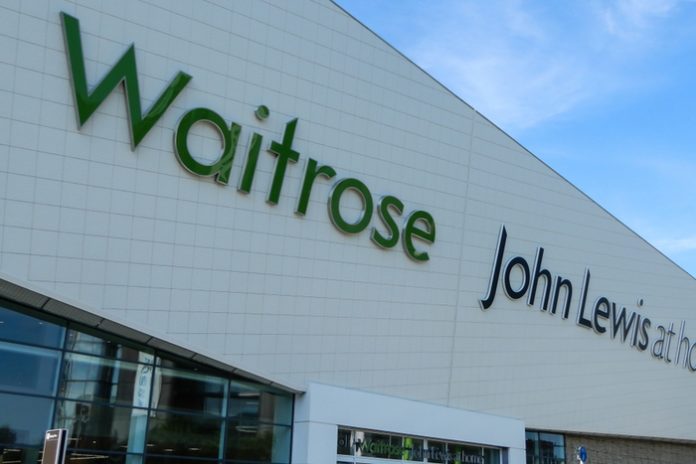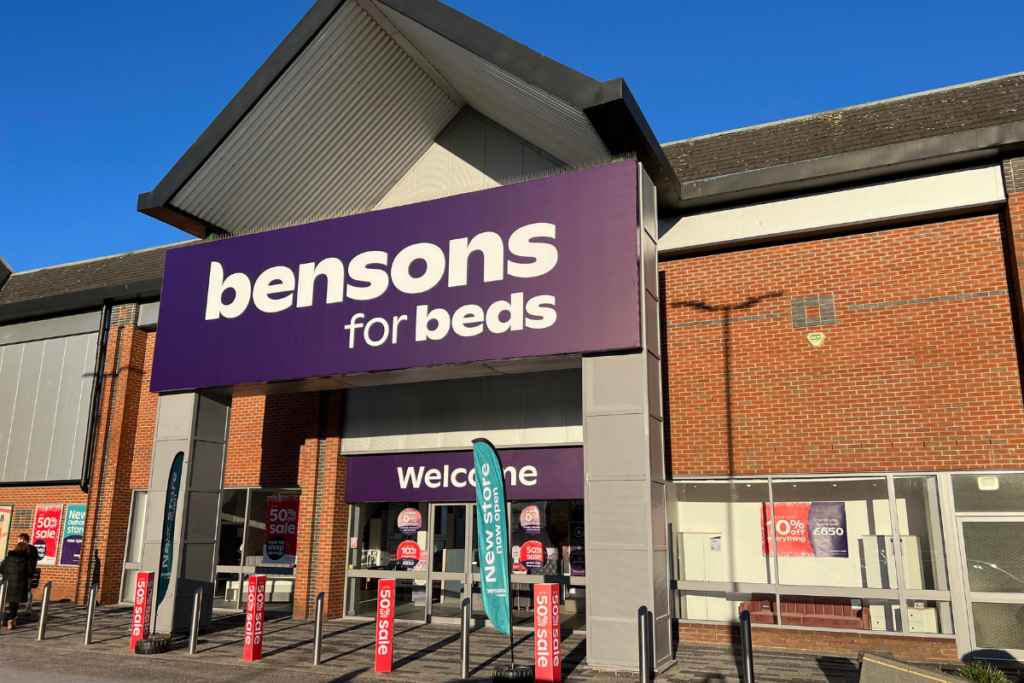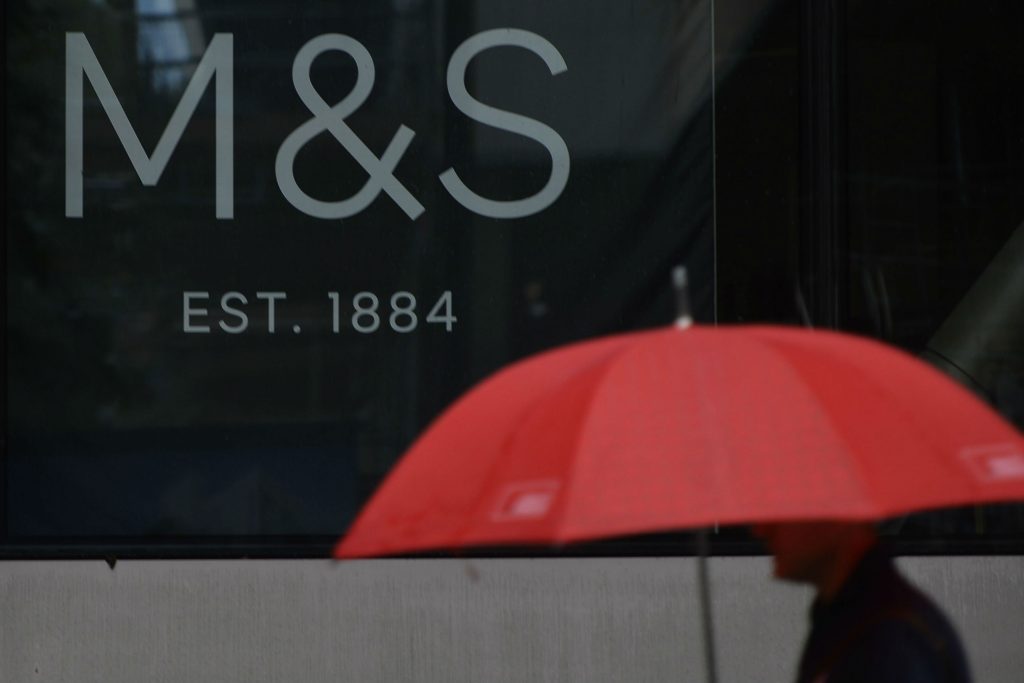Ex-Ofcom chief executive Sharon White joins John Lewis Partnership as chairman at a time when the retail business has seen a number of senior management departures.
John Lewis’ customer director Craig Inglis was the most recent executive to announce his resignation, less than a month after managing director Paula Nickolds revealed she would be leaving the department store chain after 25 years in the business.
Nickolds’ surprise departure came in the wake of a tough Christmas. While like-for-like sales at Waitrose by 0.4 per cent, John Lewis’ sales dropped by two per cent.
The Christmas results promoted then-chairman Sir Charlie Mayfield to warn staff that the company may not be able to give out annual bonuses for the first time in 67 years.

Meanwhile in its half-year report published in September, the John Lewis Partnership saw underlying pre-tax loss come in at £25.9 million, compared to profits of £800,000 for the same period in 2018.
Shortly after in October, Waitrose managing director Rob Collins announced his resignation as Mayfield revealed a restructuring plan to merge the partnership’s two retail brands’ head office functions into one team, resulting in 75 job cuts and savings of around £100 million.
While the John Lewis Partnership has stressed that its restructuring plan was not in response to cashflow issues that have sent competitors in the path of CVAs or administrations, one can argue that the signs are clear – the firm is facing one of the most challenging periods in its 90-year history.
Undoubtedly, White will face some obstacles in her role. Here are the top three.
INCREASED COMPETITION
For many retailers, rising above competitors means dominating their category. For John Lewis, the pressure around the appeal for mid-market department stores in the UK has continued to decline, with Beales being the latest to file for administration.
In 2018, House of Fraser fell into administration before being bought by Mike Ashley, the billionaire Sports Direct founder, and last year Debenhams fell into administration before a consortium of lenders bought it out and launched a CVA.
“For department stores, the uncertainty is even more acute with examples of competitors faltering both sides of the Atlantic,” said Emma Robertson, chief executive of advertising agency Engine Transformation.
“Consumer confidence is still wobbling in the wake of ongoing political change, for all retailers, the next 10 years will look very different to the last – ironically John Lewis have previously been seen as the ones capable of bucking the trend, but recent results prove even they are not immune.”
“The question for White now is, what parts of the brand still deliver competitive advantage?”
White has joined the John Lewis Partnership at a turbulent time for the wider retail sector. In fact, the pressure on high street retailers is expected to continue this year as consumers shift increasingly towards online.
Nicky Little, director of management consultancy firm Cirrus, argued that in order for the partnership to tackle competition, White needs to introduce new innovations.
University of Bath business strategy professor Veronica Hope Hailey told Retail Gazette that “the challenge remains for White to reinvent and innovate the 90-year-old business”, while trying to understand her role to ensure the business remains relevant.
Since White doesn’t come from a retail background, having spent five years as chief executive of Ofcom, Hailey argued she will likely bring fresh perspectives.
“The questions for White now is, what parts of the brand still deliver competitive advantage in this new world of retail and which pieces no longer really deliver consumer or staff loyalty?” she said.
“Or put another way – which bits do we throw out to make space for new ways of working?”
KEEPING UP WITH CONSUMER DEMAND
The John Lewis Partnership has made no secret about its efforts to remain relevant and innovative. For example, in November, John Lewis and Waitrose announced they would launch a customer experience-centric concept shop in Southampton.
Last year, the partnership struck a deal with Boden to allow customers to use the John Lewis click-and-collect service and collect online orders from selected Waitrose stores, while the grocer also offered shoppers DNA tests in two of its London stores to enable users to determine which foods are genetically suited to them.
Meanwhile, John Lewis became the first department store to remove plastic bags at a singular store in Oxford to keep up with the sustainability demand.
The partnership has already demonstrated “it can innovate and keep up with trends in the past”, according to Little.
“White has walked in at a challenging time, everything is changing”
“Its focus on sustainability and corporate responsibility has helped differentiate it. It has introduced more experiential shopping experiences in stores,” she added.
“Its digital investment has also been focused on creating experiences and services that people value.”
Despite this, Little argued that White will no doubt be considering significant changes: “White will ask herself, should John Lewis hang on to its sizeable portfolio of stores?”
Hailey argued that it’s not just the John Lewis Partnership that’s in trouble.
“Most of the retail sector needs to rethink how its business works in light of changing consumer habits and the impact of digital,” she said.
“White has walked in at a challenging time, everything is changing and she needs to address those shifting consumer behaviours.”
BUILDING TRUST WITH MANAGEMENT
One of the first decisions White will be faced with is whether or not to pay partnership staff their annual bonus – a decision that could set the tone for her leadership.
Mayfield warned all 81,000 employees in early January that they miss out on annual bonuses for the first time in 67 years due to a decline in the partnership’s Christmas sales.
As the new chair, White may need to generate trust and loyalty from customers, staff and other stakeholders. Little said White will also need to bring “an agile style of leadership” to the partnership, helping it respond to challenges with speed and focus.
“She will need to be skilled at helping people to perform better while also disrupting traditional ways of thinking and doing things,” she told Retail Gazette.
“White will need to be skilled at helping people to perform better”
She added: “Engaging both colleagues and customers is a challenge, but if White can help people understand how changes will benefit them, those changes are likely to land well.”
University of Oxford retail marketing professor Jonathon Reynolds said: “The main challenge is the lack of key people at the next level of the organisation to whom to delegate.
“The departure of Nickolds and Collins leaves gaps in the senior team that will need to be filled in short order.”
Hailey agreed. She said now that new executives will be replacing Nickolds and Collins, White will need to create an atmosphere in the boardroom that allows colleagues ask questions that weren’t asked before.
“It’s important that White allows those kinds of difficult questions to be asked,” she said.
“That’s her challenge as a chair, it’s about her creating a culture that allows questioning in a safe environment.”
Although it may be unusual for a leading retailer such as John Lewis Partnership to appoint a chair with no retail experience, it might be important for retailers to begin taking similar risks.
In the past, retailers went under because they carried on following the same procedures by the same management team.
Reynolds argued that everyone may be focused on White’s lack of retail experience, but the partnership actually has a track record of recruiting its senior team from the public sector or the armed forces.
The partnership’s “Future Partnership” strategy is clear, and the restructure that underpins it means one change above all others: making John Lewis and Waitrose operate and feel like one business.
If that is going to work externally, it needs to work internally first – not a small task for an organisation which has historically been separate with a healthy amount of sibling rivalry driving growth and internal identity.
Reversing that and creating a net new culture will be critical to success, but it will be a real challenge for White.
Click here to sign up to Retail Gazette‘s free daily email newsletter


















